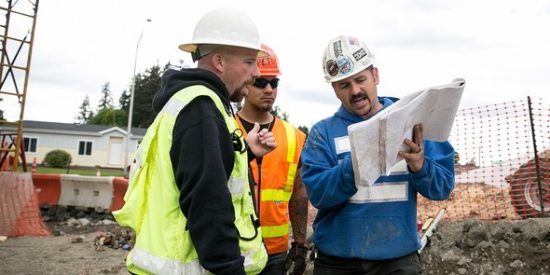Sharing your thoughts
 Getting feedback from you is important to represent you in Olympia. I invite you to take this survey as an opportunity to share your priorities. If you have other concerns or comments please feel free to send me an email or call my office. Getting feedback from you is important to represent you in Olympia. I invite you to take this survey as an opportunity to share your priorities. If you have other concerns or comments please feel free to send me an email or call my office.
100 years of women voting, and there is still more work to be doneThis week the House passed two bills that represent the history and future of the fight for women’s equality – House Bill 2007 and the Equal Pay Opportunity Act. In 2020, the United States will celebrate the centennial of women’s right to vote. It is hard to believe that 100 years ago women in the United States did not have the right to vote. Washington was a trailblazer in women’s suffrage, passing a state law in 1910 giving women the right to vote which fueled the women’s suffrage movement on the west coast. The Centennial is an opportunity to learn about our history, the impact that citizens engaged in their government can have, and the tremendous progress that has been made since the 19th Amendment was ratified in 1920. We’ve come a long way in 100 years but there is still work to be done. You’ve probably heard that, on average, a woman makes around 80 cents to a man’s dollar for the same work. Women are taking home smaller paychecks and many of them don’t even know it because they are not allowed to talk about wages with coworkers. To address the persistent wage gap, this week the House passed the Equal Pay Opportunity Act on a 69-28 vote. I am confident the Senate will give this bill its support and send it to Governor Inslee for his signature. The Equal Pay Opportunity Act will empower women and reaffirm Washington’s longstanding pursuit of equality in the workplace by banning pay secrecy policies, allowing discussion of wages and prohibiting retaliation against workers for asking for equal pay and opportunities. I feel great pride serving in a legislature that champions equality for women and supports children, youth and families in multiple ways. Women in the legislature – a personal noteAfter the 2016 election, women were in the majority in the House Democratic caucus – a far cry from when my Aunt Mary LeCocq was elected to the House in 1952 when only seven of the 147 legislators were women. Aunt Mary ran as a temperance candidate and railed again the heavy drinking in the Capitol. She managed to get the infamous “Committee Room 13” eliminated – and lost the support of her colleagues as a result. She only served one term. House passes construction budget with a record $1 billion to build schoolsThe new $4 billion-plus capital budget passed by the House and Senate this week will create thousands of jobs in every corner of the state—and includes a record $1 billion to build public schools and $800 million to build colleges and universities. Click here to find more details about local projects. Statewide, here are some details about the education projects funded in the capital budget:
Part of the philosophy of the state construction budget is to get maximum value for taxpayers by leveraging as much local and federal funding as possible for each project. The proposed capital budget leverages more than $600 million in additional non-state funding just in the natural resources area alone. The school construction funding and the Early Learning Facilities Fund will also leverage local public and private funding. In cooperation with new investments in the House operating budget, the construction proposal would put $165 million toward fixing the state’s mental health crisis. That funding includes:
Additionally, the budget funds $105 million in the House Trust Fund to support low-income and affordable housing in our communities. The budget also funds:
I encourage you to contact my office with your opinions, questions or concerns. |

